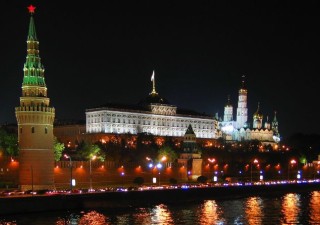Remedies to Trademark Infringement
01 November 2012

Infringement of trademarks, being a commonly practiced threat, has been included under Section 29 of the Trademarks Act, 1999, which lays down that when a registered trademark is used by a person who is not entitled to use such mark under the law, it constitutes infringement.
Trademark infringement claims generally involve the issues of likelihood of confusion, counterfeit marks and dilution of marks.
Likelihood of confusion occurs in situations where consumers are likely to be confused or misled by the source of goods.
The plaintiff must show that because of the similar marks, many consumers are likely to be confused or misled about the source of the products that bear these marks.
Remedies for trademark infringement are mentioned in section 135 of the Trademark Act 1999 and can be in the form of injunction (as the court thinks fit) and either damages or on accounts of profits, together with or without any order of delivery up of the infringing labels and mark for destruction or erasure.
The injunction may be of diverse types, namely interim granted exparte or otherwise permanent.
An interlocutory interim injunction may be granted ex parte; that is, without notice in cases of urgency. Such ex parte injunction is, however, granted for a limited period only. The plaintiff seeking an ex part interim injunction has to discharge the duty of making full disclosure to the court of all facts which are material to the exercise of the court’s discretion whether or not to grant the relief.
On the other hand, a perpetual or permanent injunction is an order restraining the defendants totally, for all times to come, from doing any act which infringes the right of the proprietor of the trademark. It is generally granted when the suit is finally decided.
A perpetual injunction usually follows when the grant of interim injunction against infringement was granted at the beginning of the suit. It can also be granted in cases where no interim injunction was granted.
Along with these two injunctions, a court may also grant other orders such as Anton Piller orders or Mareva injunctions. Anton Piller orders are ex parte orders to inspect the defendant’s premises.
A court may grant such an order to the plaintiff where there is a possibility of a defendants destroying or disposing of the incriminating material. Mareva injunctions, on the other hand, are that where the court has power to freeze the defendant’s assets where there exists a probability of the assets being dissipated or canceled so as to make a judgment against him worthless and unenforceable.
Damages in trademark law as a relief has increasingly assumed importance. The main aim of damages is to monetarily compensate the aggrieved party which has suffered injury. Damages can be both compensatory and punitive in nature.
In Microsoft Corporation v. Deepak Raval, CS (OS) No 529/2003, the Delhi High Court held that the justification for award of compensatory damages is to make up for the loss suffered by the plaintiff and that the rationale behind granting punitive damages is to deter a wrongdoer and other like-minded individuals from indulging in such unlawful activities. This is more so when an action has criminal propensity.
However the turning point with respect to granting damages in trademark infringement came around in 2005, when the court awarded punitive damages along with compensatory damages in the case of Time Incorporated v. Lokesh Srivastav 2005(30) PTC (3)(Del).
In this case, a decree of Rs500,000 (US$10,700) on account of damages to the reputation and goodwill to the plaintiff was passed in favor of the plaintiff and against the defendants. A decree in the sum of Rs500,000 on account of punitive or exemplary damages was also passed in favour of the plaintiff and against the defendants for flagrant infringement of the plaintiff’s registered trademark and copyrights.
The court also in this case drew a distinction between punitive and compensatory damages and held that compensatory damages to a plaintiff are aimed at compensating him for the loss suffered by him, whereas punitive damages are aimed at deterring a wrongdoer and other like-minded individuals from indulging in such unlawful activities.
In India, the principles involving damages in trademark infringement are still evolving, and the Indian courts are showing enthusiasm by bringing about new interpretation.
LEX ORBIS Intellectual Property Practice
709/710, Tolstoy House, 15-17,
Tolstoy Marg, New Delhi - 110 001,
India
T: +91 11 2371 6565
F: +91 11 2371 6556
E: mail@lexorbis.com
W: www.lexorbis.com






